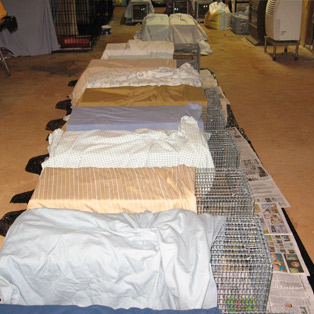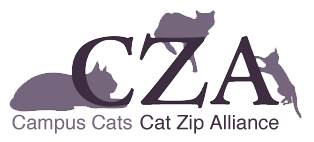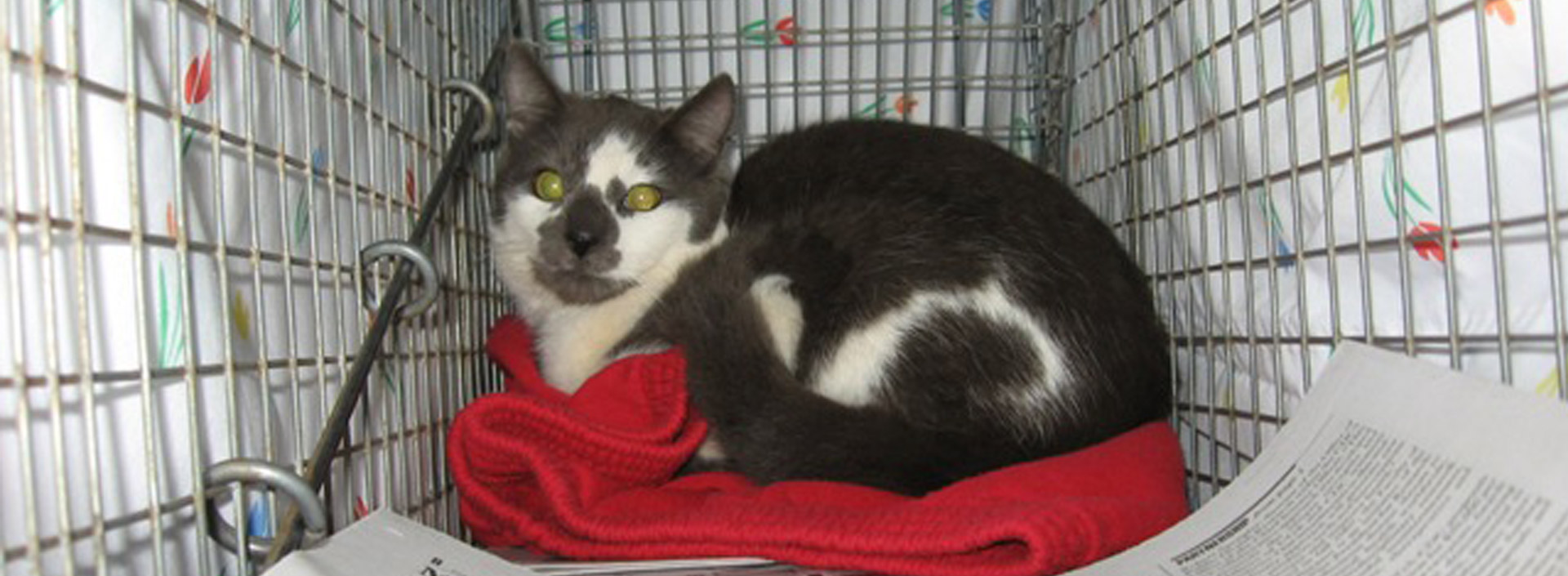Community Cat Management Information and Resources
“Responsible feral cat advocates and practitioners of TNR share one goal with wildlife and environmental groups, animal control agencies, and public health officials: to reduce the number of feral cats in the environment in the long term.”
Download our resources PDF here.



Click below to learn more
- Alley Cat Allies
- Best Friends
- Neighborhood Cats
- Humane Society of the United States
- Cole & Marmalade video on trapping
- Also from the Humane Society of the United States: Managing Community Cats: A Guide for Municipal Leaders. This guide is designed to help communities find long-lasting, non-lethal solutions to conflicts involving community (feral and stray) cats. The guide examines how typical conflicts can be mitigated and addresses proactive approaches as well as the importance of collaborative efforts in local communities. Concisely focused on what local leaders want and need to know, this guide is endorsed by the International City/County Management Association and while well-supported by the latest science is also easy to read and understand. The guide provides background on the issues, options for resolving conflict, and resources for more in-depth information and assistance. $10 hardcopy from HSUS or available for free download online.
- Vox Felina – Providing critical analysis of claims made by those opposed to community cat management and trap-neuter-return (TNR).
- Community Cat Coalition of WA – Fantastic Facebook posts with advice and tips on every aspect of backyard feral cat management and TNR. You can read old FB posts on their web site (listed by category)
- Lifeline’s Community Cat Program/Catlanta – Follow them on Facebook too
- Feral Cat Program of Georgia – Follow them on Facebook too
- Furkids
- Atlanta Humane Society
- Paws and Whiskers
Athens Clarke County Colony Caretaker Registration (see ordinances at bottom)
No longer need to have a letter from a local rescue group to register, and do not need a letter from the property owner if you are renting. Registered caretakers may receive vouchers from Athens Clarke County Animal Services to partially offset the cost of rabies vaccination, ear-tipping, and neutering of feral cats trapped at the colony location that can be used at the Athens Area Humane Society clinic or the Madison Oglethorpe Animal Services clinic.
- Athens Area Humane Societ y– (706) 769-9155
1030 Mitchell Bridge Rd
Athens, GA 30606 - Athens Clarke County Animal Services – (706) 613-3540
125 Buddy Christian Way
Athens, GA 30605 - Oconee County Animal Control – (706) 769-3956
1171 Branch Rd
Bishop, GA 30621 - Madison Oglethorpe Animal Shelter – (706) 795-2868
1888 Colbert-Danielsville Rd
Danielsville, GA 30633
If you plan to do a lot of TNR it is worth it to spend a little more and get your own traps. You could buy the ones from local feed & seed stores or home improvement stores but they don’t last long. Avoid collapsible traps – a cat that is thrashing around can cause it to collapse! Traps should be 12” tall and either 30” or 36” long. Two-door traps are best – one end should have a sliding door. This allows for easier trap set up, easier care of cats during the time they are being held, and is needed for use with drop traps. If you plan to do a lot of trapping, consider buying a drop trap and at least one feral cat recovery cage.
- Tru Catch Traps – Makers of the “Fat Cat Traps” (in addition to regular traps), and all have a larger trip plate so there isn’t a need to cover the trip plate when setting the trap. Can purchase matching trap dividers and transfer cages. The Fat Cat Trap does not work for small kittens, but their smaller size traps do. They also sell the feral cat recovery cage which is great when you have to hold a cat longer than a couple days. Traps with sliding doors can be placed up against the recovery cage’s sliding door to safely transfer them into the recovery cage which is large enough for a litter box.
- Safeguard traps – be sure to get a two-door trap (“slide release back”). Can purchase matching trap dividers and transfer cages.
- Tomahawk traps – sells regular traps designed by Neighborhood Cats and trap accessories and the drop trap plus accessories. Neighborhood Cats also teamed up with Tomahawk Live Trap to design the first mass-manufactured drop trap, making this kind of trap easily available and affordable. It’s all metal, folds up flat in a suitcase style and has an optional remote control. A sliding door on the side allows for transfer into a box trap with a rear door, transfer cage or feral cat den. Order Model DT1.
Be sure to contact each clinic BEFORE YOU TRAP to find out what days/times feral cats can be brought in, whether or not an appointment is required for feral cats, cost (always ask if there is a special deal or free services happening!), what type of payment is accepted, etc. The information below might have changed, so always check with the clinic first. All clinics require feral cats be brought in traps – no feral cats in cat carriers!
- Athens Area Humane Society Spay Neuter Clinic – 706-769-9155
Appointments required. Athens, GA (Clarke County)
They accept the vouchers for feral cat colonies registered in Athens Clarke County. - Madison Oglethorpe Animal Shelter – 706-795-2868
Appointments required. Danielsville, GA (Madison County)
They accept the vouchers for feral cat colonies registered in Athens Clarke County. To use the Clarke County vouchers at MOAS email
manager@moaspets.com and coordinator@moaspets.com - LifeLine Spay & Neuter Clinics
No appointments needed for 1-2 feral cats; appointments required for pets or 3 or more ferals. Monday thru Thursday.
Two locations:
College Park/Fulton County – (678-973-2881) &
Presidential Drive in Atlanta/Dekalb County – (404-292-8800) - Planned Pethood – 678-561-3491
No appointments needed for up to 2 feral cats (every Monday, Tuesday, and Wednesday we allow the public to bring in two cats per person with no appointment at 8 a.m. (in humane traps only) to be altered, ear tipped, and vaccinated against rabies for only $35, or FREE to Gwinnett County residents.) Appointments required for pets, 3 or more ferals, and Thursday appts. Monday thru Thursday.
Duluth, GA (Gwinnett County) - Paradox Spay Neuter Clinic – 770-787-8717
No appointments needed for 1 or 2 feral cats in traps; appointments required for pets or 3+ ferals. Wednesday thru Friday.
Loganville, GA (Walton County) - Humane Society of Northeast Georgia – 770-532-6617 ext 250
Appointments required. Tuesday thru Friday.
Gainesville, GA (Hall County) - Leftover Pets – 770-307-3499
Appointments required. Monday, Tuesday, Thursday, Friday.
Winder, GA (Barrow County) - Atlanta Humane Society
Free feral cat surgeries for anyone but on Mondays only, up to 6 cats in traps at a time per person. Must enter cat info online the night before, (can do even after they are closed). Drop off 7 AM
1565 Mansell Road Alpharetta, GA (Fulton County) - Spay Neuter Vets – (678) 834-0777
$40 feral cat package, appointments required and can be made online. Monday-Friday
Alpharetta, GA - Society of Humane Friends – 770-962-4301
Appointments required. Will not do ferals, pregnant, or in heat cats. Thursday, Friday. Cash only.
Lawrenceville, GA (Gwinnett County) - Hart County Humane – 706-436-0965
spay/neuter vouchers available through Hart County Humane for Hart & Franklin County residents only to be used at participating vets.
(Hart & Franklin Counties) - CatSnip’s mobile clinic is also available. Visit their web site to see the calendar of when & where they will be. (Deposits for appointments are not refundable.)
- Gwinnett Animal Welfare and Enforcement 2 free surgeries per day for Gwinnett county residents. Drop-off Monday – Friday, 7:30am – 9:00am. All cats must be in a trap. Only two cats per household per day
Bill Atkinson Animal Welfare Center
84 Winder Highway, Lawrenceville GA 30045
770.339.3200
You will often read that if you catch kittens over 8 weeks of age, they cannot be tamed. False! We have found that even “teenagers” – cats 3-8 months old – can easily be tamed. It might take more time, and they may never trust any humans other than those they live with, but these older kittens are often desperate for food and love if they have been separated and are lost from their siblings or mom, making them easier to socialize.
Relocation is something to consider only if keeping the cats where they are becomes a threat to their lives, such as their territory being demolished and there is no adjacent space to shift them to, or if the cats’ lives would be at extreme risk should they remain where they are. Community cats are typically much better off being spayed/neutered and returned to the territory they already know – especially because many will try to return to their old territory if moved elsewhere – but if they do need to be relocated, visit these resources for how to make relocation as successful as possible:
Animal Control
Athens-Clarke County Municiple Code Library
Sections pertaining to feral cats adopted in 2022:
- ARTICLE 5. – COMMUNITY CATS
modified
Share Link to sectionPrint sectionDownload (Docx) of sectionsEmail sectionCompare versions - Sec. 4-1-26. – Authorization for TNR and care of community cats.
modified
Share Link to sectionPrint sectionDownload (Docx) of sectionsEmail sectionCompare versionsIn order to care for and decrease the size of the free-roaming cat population in Athens-Clarke County over time, any member of the public may:
(a)
Capture in a humane manner any free-roaming cat such person reasonably believes to be unowned for the purpose of TNR or receiving veterinary care without being considered its owner; provided, however, the cat must be sexually sterilized, ear-tipped, and rabies-vaccinated before being released at the location where it was originally found or it must be taken to the Animal Services Department;(b)
Perform TNR by having any free-roaming cat such person reasonably believes to be unowned sexually sterilized, ear-tipped, and vaccinated against rabies by a licensed veterinarian, and return the cat to the location where it was found, unless illness or injury present an imminent danger to public health or safety, or the health or safety of the cat, in which case the cat must be taken to a licensed veterinarian for care or euthanasia or to the Animal Services Department instead of returned;(c)
Act as a caretaker for one or more community cats without being deemed an owner and without being subject to sections 4-1-2 through 4-1-9 and any licensing provisions of this chapter, except as otherwise specifically provided in this chapter;(d)
Temporarily retain possession of a free-roaming cat such person reasonably believes to be unowned for the purpose of recovering from veterinary care without becoming the cat’s owner; provided that the cat shall not be controlled or confined for longer than is reasonably necessary under the circumstances, and during any such period of confinement the cat must be cared for in such a way that the applicable provisions of this chapter even though otherwise exempted are complied with; provided, further, that the cat must be sexually sterilized, ear-tipped, and rabies-vaccinated before being released at the location where it was originally found or it must be taken to the Animal Services Department; and/or(e)
Have a formerly free-roaming cat that such person trapped and brought to the Animal Services Department released to such person on such terms as may be established by the Animal Services Director in accordance with any TNR or return-to-field program established by the Animal Services Department without being considered the owner of the cat.(f)
Failure to comply with any applicable provision of this section shall be a violation.Nothing in the foregoing shall authorize a person to enter onto another person’s property without permission of the property’s lawful possessor.
- Sec. 4-1-27. – Duties of caretakers.
modified
Share Link to sectionPrint sectionDownload (Docx) of sectionsEmail sectionCompare versions(a)
A caretaker shall make a reasonable effort to:- (i)
Reduce the local population of free-roaming cats, including by promptly engaging in TNR with respect to all potential community cats estimated to be twelve weeks of age or older for which such person cares. TNR shall be considered prompt if begun within two weeks of the person beginning to care for the cats and pursued as diligently as is reasonable given the number of cats, weather, and availability of sexual sterilization surgery appointments;(ii)
Take possession of free-roaming kittens that such person feeds that are reasonably estimated to be less than twelve weeks of age and deliver them to the Animal Services Department for domestication and placement;(iii)
Take possession of any sick or injured community cat for which such person cares for the purpose of immediate veterinary care, humane euthanasia by a veterinarian, or impound at the Animal Services Department without being considered the cat’s owner;(iv)
Ensure that all community cats for which such person cares receive food and water year round; and(v)
Identify a replacement caretaker if such person is unable to continue to care for one or more community cats.
(b)
Each failure to take an action set forth in subparagraph (a) of this section shall be a separate violation.(c)
A caretaker who persistently or repeatedly violates this section shall be prohibited from serving as a caretaker for a two-year period after which the Animal Services Director, in the Director’s reasonable discretion, may authorize such person to resume serving as a caretaker. - (i)
- Sec. 4-1-28. – Prohibitions.
modified
Share Link to sectionPrint sectionDownload (Docx) of sectionsEmail sectionCompare versionsNo person shall:
(a)
Leave a trap such person has set for the purpose of catching a cat unattended in excess of 12 hours;(b)
Release a cat outdoors that is known to be positive for feline leukemia or FIV, that is more than superficially ill or injured, or that is not known to be sexually sterilized, currently vaccinated for rabies, and ear-tipped;(c)
Release a cat to any outdoor location, other than a community cat that (1) is returned to its original location after TNR or veterinary care, or (2) was trapped or otherwise caught within Athens-Clarke County that is rehomed as part of a program established by the Animal Services Department; or(d)
Knowingly interfere with or obstruct the care of a community cat that has a known caretaker, unless the cat is, or the caretaking is performed, on such person’s lawfully possessed property. Interference or obstruction includes, but it not limited to:- (1)
Trapping a seemingly healthy and uninjured community cat;(2)
Luring a cat onto property lawfully possessed by such person, unless such cat is established by photographic or video evidence (or the written statement of two or more persons describing the cat to be trapped) to be roaming on such person’s property and the luring is accomplished through the provision of food in a humane trap under ordinary cat trapping procedures;(3)
Poisoning, polluting, or removing food or water for a community cat;(4)
Removing, damaging, or destroying a shelter for a community cat; or(5)
Committing an otherwise unjustifiable act that negatively affects the community cat; or
(e)
Control or confine a community cat for any purpose other than as described in this chapter without complying with the requirements of sections 4-1-2 through 4-1-9.(f)
Each action set forth in this section shall be a separate violation. - (1)
- Sec. 4-1-29. – Limitations.
modified
Share Link to sectionPrint sectionDownload (Docx) of sectionsEmail sectionCompare versionsNothing shall prohibit:
(a)
A property owner from taking lawful steps to control or restrict community cats within the limits of the owner’s property including, but not limited to, taking the cat to the Animal Services Department; or(b)
The Animal Services Department from seizing and removing community cats for public health or public safety concerns, including an outbreak of rabies, other zoonotic disease epidemics, and animal-to-animal diseases identified by the Animal Services Director. - Sec. 4-1-30. – Voluntary registration program.
new
Share Link to sectionPrint sectionDownload (Docx) of sectionsEmail sectionCompare versionsThe Animal Services Department shall maintain a voluntary registration program for caretakers. A caretaker who notifies the Department of the location and approximate number of community cats for which such person cares and verifies compliance with this chapter and provides the Department with current contact information shall be:
(a)
Notified by the Department if an ear-tipped cat from the general vicinity specified in the registration is impounded at the Animal Services Department;(b)
Permitted to take possession of a community cat for which such person was caring prior to such cat’s impound by the Animal Services Department during the period of time set forth in section 4-1-19 without establishing ownership of the cat; and(c)
Prioritized for participation in any TNR or other applicable program established by Athens-Clarke County, if otherwise qualifying under the terms of such program.
The Animal Services Director may deny a registration or revoke any prior registration in the Director’s reasonable discretion.

